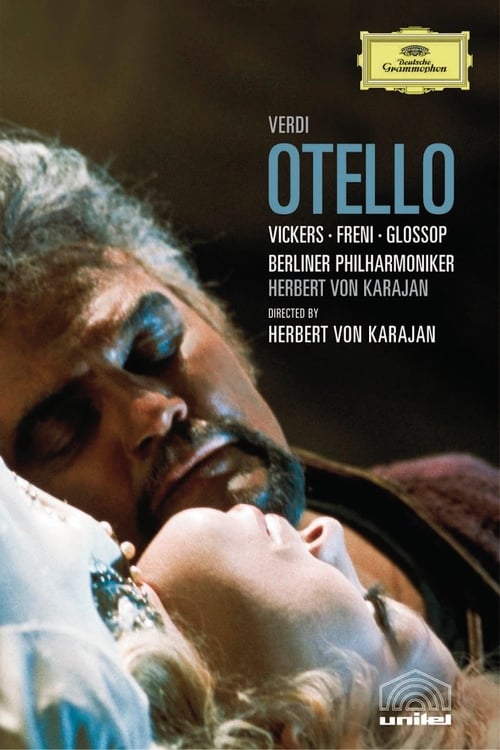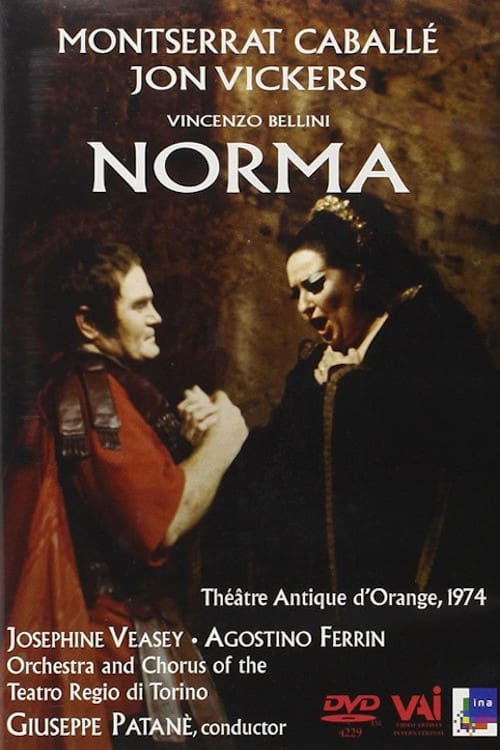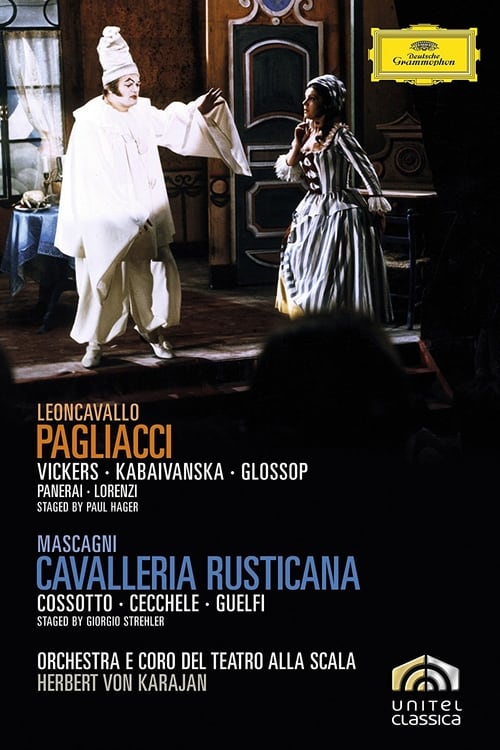Movies by Jon Vickers

Otello
Herbert von Karajan directed this film of Verdi’s Shakespearan masterpiece as well as conducting the Berlin Philharmonic. As the tragic Moor of Venice, arguably his greatest role, John Vickers (in the words of critic David Cairns) "commands both the notes and the moral grandeur of the part. … And he has the aura of greatness – greatness of heart, of bearing, of musical and dramatic conception". Mirella Freni is a heartbreakingly lovely and fragile Desdemona, while the fine English baritone Peter Glossop plays the villainous Jago.

Norma
Oroveso, a Druid High Priest, gathers his people in a sacred forest and prays to their gods for help in vanquishing the Romans who have taken over Gaul. Unbeknownst to Oroveso, his daughter, Norma, a High Priestess, has for some time been the lover of Pollione, the leader of the Romans; she has, in fact, not only broken her sacred vow of chastity but has borne two children to the warrior. Norma uses her position to dissuade the Gauls from attacking the Romans, claiming that the gods have told her that the time is not favourable. Recorded at ...

Fidelio

Bizet Carmen
This spectacular opera film was taped in 1967 and is based on the 1966 Salzburg Festival production directed by Herbert von Karajan himself, who also conducts the fabulous Vienna Philharmonic Orchestra. The production features the three greatest exponents of their respective roles at the time: Grace Bumbry’s magnificently seductive-toned Carmen, Mirella Freni’s ineffably lovely, touching Micaëla and Jon Vickers’s thrillingly manic-depressive Don José. On its release the film was hailed by Die Presse, (Vienna) as a “unique artistic event”, ...

Cavalleria rusticana / Pagliacci
Opera's most popular double bill, fondly known as Cav and Pag, conducted by Herbert von Karajan. In 'Cavalleria rusticana', Turiddu returns from military service to find that his fiancée Lola had married the carter Alfio while he was away. In revenge, Turiddu seduces Santuzza, a young woman in the village. In 'Pagliacci', the drama unfolds as Canio (Pagliaccio) struggles with rage, despair, and desire on learning of his wife Nedda's intended infidelity with Silvio. Canio's tragic conflict increasingly mirrors the comedy of Pagliaccio.